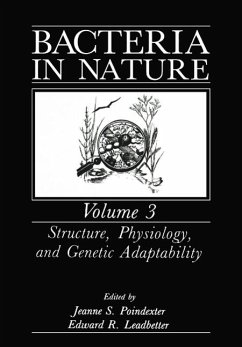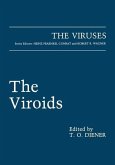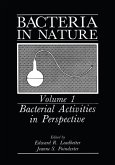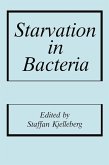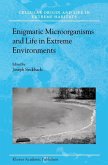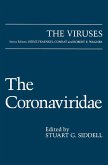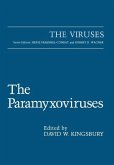The value of studies of monotypic populations is constantly argued in bacterial ecology. The controversy itself is evidenceofthe strong awareness that bacterial activities in natural sites are not determined by the bacteria alone. At the same time, the best evidence that bacteria are influenced by environmental factors is the contrast between their behavior in laboratory cultures and their relatively subdued influence when in the presence of com petitors, predators, and fluctuating-often stressful-environmental conditions. Monotypic populations are admittedly reductionist, but are not therefore irrelevant to bacterial ecology. Quite the contrary. Without pure culture studies, our understanding of important and applicable bacterial activities-N fixation, for example-would still be z limited to what we could discern from a comparison of events in steamed vis-a-vis un heated soil. As was evident throughout the previous volume in this treatise, practically any method of studying natural bacterial communities upsets them while permitting only limited assessment of the respective qualities and quantitative contributions to total com munity activity of each type of bacterium present. Total activity itself is difficult to assess and is not dependably accomplished by any single method. This third volume comprises information regarding the properties of bacteria as they have been learned largely from pure culture studies. Its purpose is twofold: to provide readers with fundamental information regarding the cellular organization, physiological capabilities, and genetic systems of bacteria; and to connect known bacterial properties with environmental influences on them and with their influences on natural processes.
Dieser Download kann aus rechtlichen Gründen nur mit Rechnungsadresse in A, B, BG, CY, CZ, D, DK, EW, E, FIN, F, GR, HR, H, IRL, I, LT, L, LR, M, NL, PL, P, R, S, SLO, SK ausgeliefert werden.

